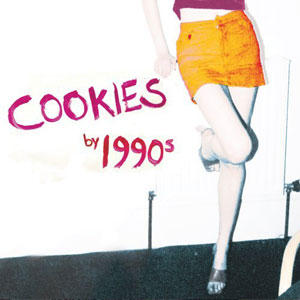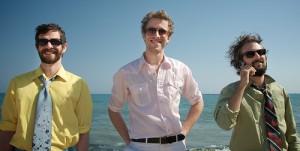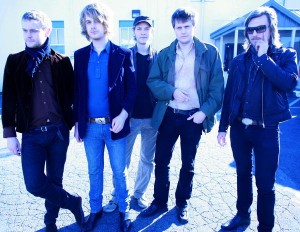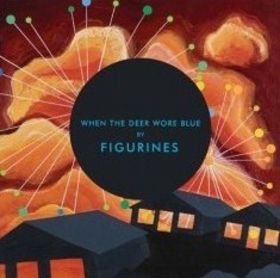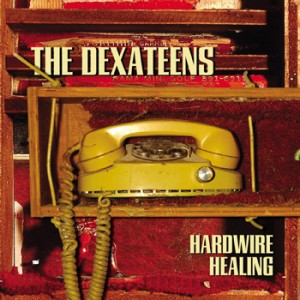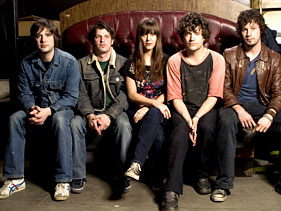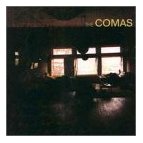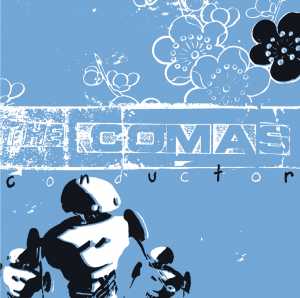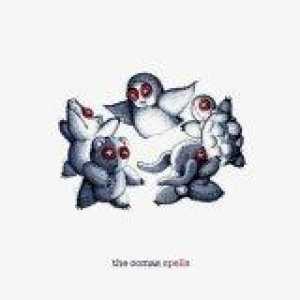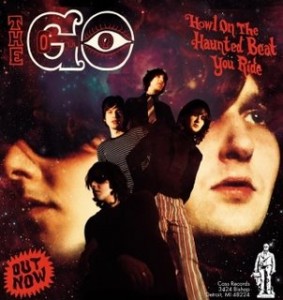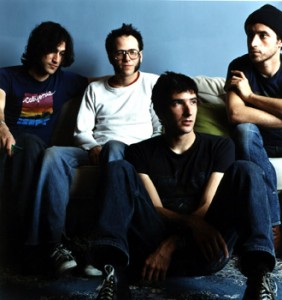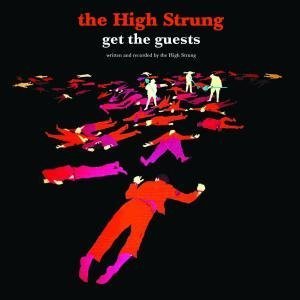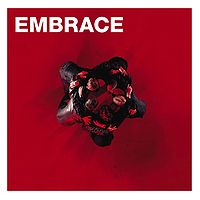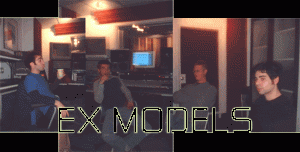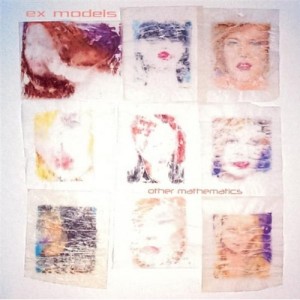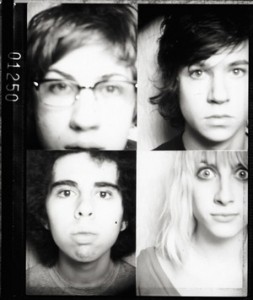 FOREWORD: Despite all the critical underground exposure and popularity Be Your Own Pet got in its short tenure, its volatile front lady, Jemina Pearl, put an end to this terrific punk band in 2008. Could this radical chick overcome the reckless partying for a second shot she rightly deserves?
FOREWORD: Despite all the critical underground exposure and popularity Be Your Own Pet got in its short tenure, its volatile front lady, Jemina Pearl, put an end to this terrific punk band in 2008. Could this radical chick overcome the reckless partying for a second shot she rightly deserves?
Could there be a better punk-devised outfit coming out of Nashville these days than the charmingly vicious bohemian quartet, Be Your Own Pet? Sure they may be politically naïve, socially ambiguous, and economically challenged, but as rebellious post-adolescent dervishes, they’ve secured a spot at the upper echelon of radically aggressive idealists.
Meeting at noteworthy Nashville School of the Arts as wet-behind-the-ears teens with familial ties to music (Country-based singer-songwriter Robert Ellis Orral’s sons are departed founding members), the impressionable punk brigade have continually wowed audiences nationwide.
My first face-to-face encounter with Be Your Own Pet was following a terrific November ’07 Mercury Lounge gig, where cutesy platinum blonde vocalist Jemina Pearl was so fucking drunk her head was lodged between the brick wall and bathroom floor of the basement backstage lounge. She’d just given it her all during a deliciously roughhewn 45-minute set, prancing the wooden stage with a reckless shambling prowess perfectly befitting the noisy rollick longhaired fleet-fingered guitarist Jonas Stein, nimble Afro-domed bassist Nathan Vasquez, and daringly dexterous drummer John Eatherly furnished. Pearl was so trashed she blacked-out, carried off to the band’s touring van by security and never to be seen again this frigid autumn eve.
Nonetheless, the spunky spitfire made an audacious impression beforehand, blasting out lovesick lyrics and frosty philandering phrases like a fierce lioness, threatening anyone disliking opening Stones-y band Used To Be Women to lick her asshole, mercilessly putting down her jaded hometown, and falling ass backwards twice during the final segment. She recollects everything leading up to the final drunkenly deranged dropdown episode.
Though it’s doubtful her Catholic father, Jimmy Abegg, a former guitarist better known as a video director-photographer, would approve, he never smothered his daughter or pressured her to attend church against her will. So where’s the salacious stage rage and unbridled frenzy coming from?
“Ever been to East Nashville in ’92? The shady part of town?” she asks with a teasing smirk. “I’m a teenage girl – well now I’m 20. I need to grow up.”
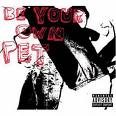 Although there’s no sign of petulance, frustration, or tortured-artist venom to be found prior to a febrile February ’08 performance, Pearl matter-of-factly explains getting into a recent altercation with a boisterous pub bum.
Although there’s no sign of petulance, frustration, or tortured-artist venom to be found prior to a febrile February ’08 performance, Pearl matter-of-factly explains getting into a recent altercation with a boisterous pub bum.
“I got in a fight at a place called Spraywater ‘cause this guy was trying to touch me. I said, ‘I don’t know you.’ He called me a bitch so I got kicked out for beating the shit out of this horny guy.” She then adds, “I think I’m gonna try to take boxing classes.”
If overwhelming fame comes her way, and it certainly may, she better get used to people wanting to touch, feel, and plug her, especially since the natural beauty jokingly provokes confrontation. Case in point: an hour after our conversation, the sexy heartthrob’s performing again at the Merc, boasting how ‘this is our sober show,’ when halfway through in a gasping out-of-breath voice, she invites any random patron onstage for combat. Scarily, a tall, bear-like, bearded man enters the fray stage right. But instead of trying to fight Pearl, he leans over for a kiss and gets socked in the face by our lovable black mascara-lined, red lip-glossed, party-shirted vixen. The fully buzzed fellow falls into Stein’s gear, stands up wearily, shakes Stein’s hand, then disappointedly disappears.
“That’s punk rock,” someone nearby chortles.
A frantic filly with bratty snot-nosed brashness who gobs onstage, Pearl proudly struts her stuff live, galvanizing mannerisms from “X Offender”-era Debbie Harry, X-Ray Spex gyrator Poly Styrene, and X-rated grunge scavenger Courtney Love. Albeit somewhat shy, insecure, and demure whilst chilling out, there’s a healthy confidence beckoning within. Her hardcore rants, snippy chants, and garrulous descants provide a spastic cartoonish mess-around given fiery pizzazz by the efficient arrangements, flawless execution, and blazing determination of her male counterparts.
Stein, whose dad Burt manages several high profile artists, strokes his axe with ferocious fervor, leading a rip-roaring rampage rhythmic raiders Vasquez (whose pa is famed Tejano Jazz guitarist, Rafael Vasquez) and Eatherly (Stein’s partner with bassist Max Peebles in impulsively ancillary trio, Turbo Fruits) mutually and murderously enforce.
On Be Your Own Pet’s viscously gnarled eponymous ’06 debut, the feral foursome (anchored at the time by percussionist Jamin Orral) relied on primal garage fury to put across candidly wicked 2-minute-and-change snapshots. Signed to Thurston Moore’s boutique Ecstatic Peace label, they became a frontrunner for the entire contemporaneous Stooges-invigorated manic rock insurgence. Pearl’s anguished caterwauls, nervy carnal subversions, and queasy self-destructive anxieties slammed into the pervasively terrorizing vertebrae-rattling assault of unendingly masticated power chords and profuse roughrider beats.
Pearl’s ‘having a blast’ throwing tantrums, laying it on the line with real or imagined riotous acrimony, yelping about being an ‘independent motherfucker here to take away your virginity’ and readily able to ‘burn your house down.’ She’s a thunderously crackling stormtrooper on nasty rambunctious fuck-offs such as rancorous abolition “Love Your Shotgun” (nastily, hastily craving ‘a room at the Hyatt!’) and darting rail “Bunk Trunk Skunk,” gruffly huffing, puffing, and spewing verbose aspersions. Buzzsaw guitar, rubbery bass, and bustling traps fortify pulverizing snipe, “Girls On TV,” while angular six-string sassafras rips through bashed cymbals on demanding dominatrix decree “We Will Vacation, You Can Be My Parasol” (whence Pearl bites Karen O’s scarifying Yeah Yeah Yeahs styling).
Stein contends, “I haven’t listened to the first record in awhile. We play the tracks live, but I forget the essence of the studio sound. We’re better writers, more experienced now.”
 Building upon that momentum, Be Your Own Pet’s ambitious ’08 sophomore endeavor, Get Awkward, avoids being a smashing letdown, even though sponsoring major label, Universal Records, dubiously pulled three of its most maliciously vital tracks. Dizzying hard partying runaround, “Super Soaked,” crassly spurts piss and vinegar. Choppy rhythms induce “Bummer Time,” a chain-sawed heartbreaker with Sham 69-filched oi boy chants. Moody menstrual mayhem ostensibly conjures “Bitches Leave.” Conversely, a newfound sensitivity (previously breached on the Pretenders-tinged serenade “October, First Account”) deluges the straight-sung heart-shattered payback, “You’re A Waste.”
Building upon that momentum, Be Your Own Pet’s ambitious ’08 sophomore endeavor, Get Awkward, avoids being a smashing letdown, even though sponsoring major label, Universal Records, dubiously pulled three of its most maliciously vital tracks. Dizzying hard partying runaround, “Super Soaked,” crassly spurts piss and vinegar. Choppy rhythms induce “Bummer Time,” a chain-sawed heartbreaker with Sham 69-filched oi boy chants. Moody menstrual mayhem ostensibly conjures “Bitches Leave.” Conversely, a newfound sensitivity (previously breached on the Pretenders-tinged serenade “October, First Account”) deluges the straight-sung heart-shattered payback, “You’re A Waste.”
But why should their record company concern themselves with the hollow death threats of a few tunes when the sex-minded weapon, “The Kelly Affair,” expounding a bad breakup, promotes pill-poppin’ promiscuity? Inspired by ’70 sexploitation spoof, Beyond the Valley of the Dolls, and sung as the main character, Kelly Mc Namara, it relates real life animosity towards a jilted ex.
Pearl defiantly insists, “Drugs are apparently o.k. But excessive violence is deemed offensive. One left-out song dealt with how I hated everyone at school. They thought it promoted school shoot-ups. Another had the line, ‘I’m gonna choke myself with a telephone chord,’ so that caused problems. Also, “Becky,” a slow ‘60s girl group song, is a fake murder ballad where I’m mad at a friend so she gets a new best friend I kill and then go to jail.”
Luckily, all three discarded tracks will show up on an EP XL Records will soon unleash. However, one could argue that censoring these rogue warriors unfairly neuters their essential cagey onslaught and brain-eating savagery (courtesy of punkabilly raid “Zombie Graveyard Party”). Haven’t the powers-that-be heard formative ’03 single, “Damn Damn Leash,” on tiny boutique label, Infinity Cat? Sans homicidal vehemence, it’s still an exhilarating DIY exhortation condemning the relentless wrath of an extremely possessive lover.
So I daresay, don’t hinder Be Your Own Pet’s meteoric rise from the Volunteer State’s weary tomb with pointless anger management. An inebriated, vengeful loudmouth from the wrong side of town just having fun is better than a stifled juvenile delinquent crying suburban blues with a couple thousand bucks to spare and an expansive trust account.


